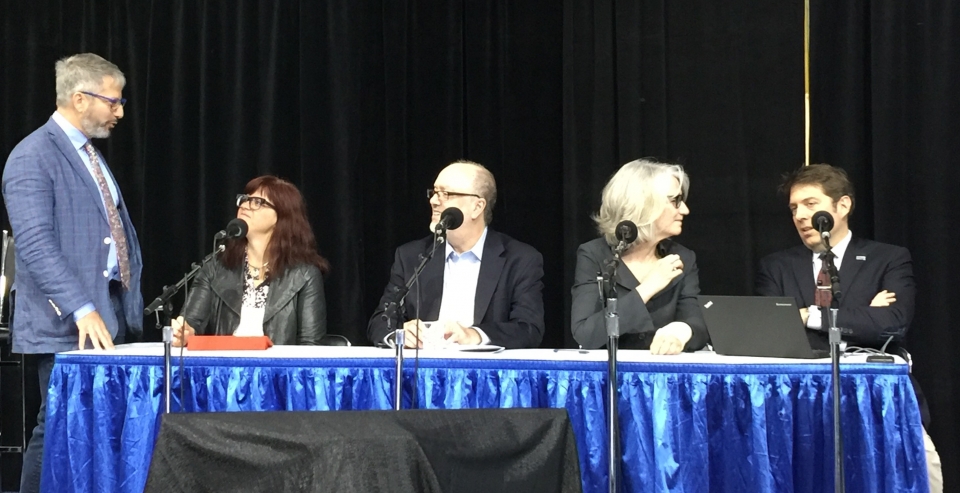The Congress of the Humanities and Social Sciences brings together leading thinkers, academics, researchers, policy-makers and innovators to explore some of the world’s most challenging issues. Congress celebrates the vitality and quality of Canadian research contributions, and helps train the next generation of Canadian ideas leadership. This year’s theme “The Next 150, on Indigenous Lands" celebrates the history, legacy and achievements of the peoples and territories that make us who we are, and anticipates the boundless opportunities of the future. Organized by the Federation for the Humanities and Social Sciences, this year’s Congress is being hosted by Ryerson University in Toronto from May 27-June 2. Follow this series of Big Picture at #congressh blogs.
The HPHD Futures roundtable brought together four leading thinkers and institution builders to share their thoughts on what the humanities can or must become by 2027 and to consider how PhD programs should be rethought and redesigned over the next 10 years. The panelists were Frédéric Bouchard, Professor of Philosophy and Deputy Vice-Rector for Research, Creation, Discovery and Innovation, Université de Montréal; Barbara Crow, Professor of Communications Studies, and Dean of Graduate Studies, York University; Robert Gibbs, Professor of Philosophy and Director at Jackman Humanities Institute, University of Toronto; Heather Zwicker, Professor of English and Dean of Faculty of Graduate Studies, University of Alberta. It was moderated by Paul Yachnin, Tomlinson Professor of Shakespeare Studies, Director of the TRaCE Project, McGill University.
One of the common threads was their positive outlook on the future of the PhD and the need for recognition of its value, particularly how it can meet the demands of evolving societal needs. Bouchard sees that those with a PhD in the humanities or the social sciences will increasingly become appreciated for understanding how our society is changing, and he foresees dramatic changes in universities over the next decade. Gibbs underscored the importance of restructuring programs from the undergraduate level so that students can be equipped and aware of research skills and other knowledge required to get into intensive research practices by the time they enter doctoral programs. His view is that it is important for the academy to move toward mentoring the ‘relationship and multiplication’ potential of students in their research rather than the application ‘replication’ model that sees students becoming exactly like their teachers. Crow, a strong advocate of student-centered approaches, conveyed the importance of cultivating pedagogical strategies throughout the PhD program as well as becoming more aware of issues around equity and mental health of students. Zwicker envisions PhD research that is more outward-facing, collaborative, and connected to social issues. To do so, she suggests we should consider what it means to take part in ethical engagement as well as consider the shifting contexts for what will define excellence in doctoral work.
This roundtable, “HPHD Futures: The humanities PhD in 2027,” was hosted by Federation for the Humanities and Social Science at Congress 2017 at Ryerson University in partnership with the TRaCE Project.

